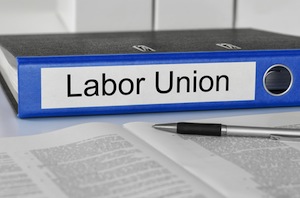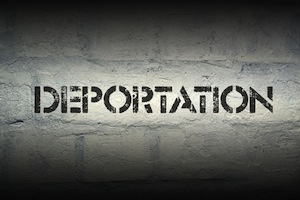 On April 1, 2015, the U.S. Citizenship and Immigration Services will begin accepting H-1B visa applications, which will count toward the H-1B cap for the 2016 fiscal year. The 2016 fiscal year begins on October 1, 2015. Each year, there is regular cap of 65,000 H-1B visas. There is also an advanced exemption for the individuals who have obtained a U.S. master’s degree or higher. The advanced exemption limit is 20,000.
On April 1, 2015, the U.S. Citizenship and Immigration Services will begin accepting H-1B visa applications, which will count toward the H-1B cap for the 2016 fiscal year. The 2016 fiscal year begins on October 1, 2015. Each year, there is regular cap of 65,000 H-1B visas. There is also an advanced exemption for the individuals who have obtained a U.S. master’s degree or higher. The advanced exemption limit is 20,000.
Every year, the H-1B cap fills up quickly. Last year, USCIS received the sufficient number of H-1B petitions to reach the statutory cap for fiscal year 2015 by April 7, 2014. In this regard, employers with H-1B workers and visa applicants should begin preparing to ensure that all the necessary documents and information is timely provided to USCIS.
Beginning April 1, there is an initial intake period when USCIS accepts applications. After the intake period ends, and if USCIS receives more H-1B petitions than the cap allows, USCIS will run a random selection process to select the number of petitions needed to meet the caps.
Eligibility under H-1B Visa Program
H-1B visas are reserved for U.S. businesses that employ foreign workers “in specialty occupations that require theoretical or practical application of a body of highly specialized knowledge.” Examples of “specialty occupations” include scientists, engineers, or computer programmers.
To apply for an H-1B visa, there are specific requirements and detailed procedures that USCIS requires applicants to follow. For example, USCIS requires applicants to submit a Labor Condition Application, which is used to show that H-1B visa holders do not adversely affect the wages and working conditions of U.S. workers. If you have any questions regarding whether you qualify for an H-1B visa application or the process to obtain a visa, a Chicago immigration attorney can help you through this process.
Are Changes Coming to H-1B Visa Program?
Congress has recently taken steps to introduce legislation that would increase the number of H-1B visas available each year. Recently, three Republican and three Democratic Senators introduced legislation, the Immigration Innovation bill, to increase the annual cap on H-1B visas from 65,000 to 115,000. Furthermore, the legislation also proposes eliminating the restriction of H-1B visas for workers with advanced degrees from U.S. institutions in science, technology, engineering and math.
The legislation is not just limited to expanding the annual cap. Senator Orrin Hatch, one of the bill’s sponsors, said that it would “authorize employment for the dependent spouses of H-1B visas holders and allow a grace period for foreign workers to change jobs and not be out of status.” It would also bring changes to other visa programs, including visa programs for students, persons with extraordinary ability, and outstanding professors and researchers. Hatch hopes that the bill will provide an opening to “more progress” on a broader immigration bill.
The bill, however, will likely be met much resistance from other members of Congress, as have previous attempts to increase the H-1B cap. One opponent, Senator Jeff Sessions (R-AL), cannot understand “why we would ever consider advancing legislation that provides jobs for the citizens of other countries at the expense of our own.”
Contact a Chicago Immigration Attorney
If you have any questions regarding H-1B visas or the process to obtain one, the experienced Chicago immigration attorneys at Katz Law Office, Ltd. can help you. We have several convenient locations in the Chicagoland area, and we offer a free initial consultation.




 Over the last months, President Barack Obama’s executive action on
Over the last months, President Barack Obama’s executive action on  Generally, if a citizen of another country wants to come to the United States as a tourist, then the citizen will need to obtain a visitor
Generally, if a citizen of another country wants to come to the United States as a tourist, then the citizen will need to obtain a visitor  Illinois is one of 14 states where the population of undocumented
Illinois is one of 14 states where the population of undocumented  In November, President Obama
In November, President Obama  Each employer in the United States must have a document on file that verifies an employee’s authorization to work within the country. This is known as
Each employer in the United States must have a document on file that verifies an employee’s authorization to work within the country. This is known as  When someone is applying to
When someone is applying to  Cities around the country, including Chicago, have enacted various ordinances and legislation to curb the ability of local officials to
Cities around the country, including Chicago, have enacted various ordinances and legislation to curb the ability of local officials to  WHO CAN APPLY (does not mean you
WHO CAN APPLY (does not mean you In 2000, Congress created a nonimmigrant visa category that allows victims of certain crimes to obtain a visa. The
In 2000, Congress created a nonimmigrant visa category that allows victims of certain crimes to obtain a visa. The